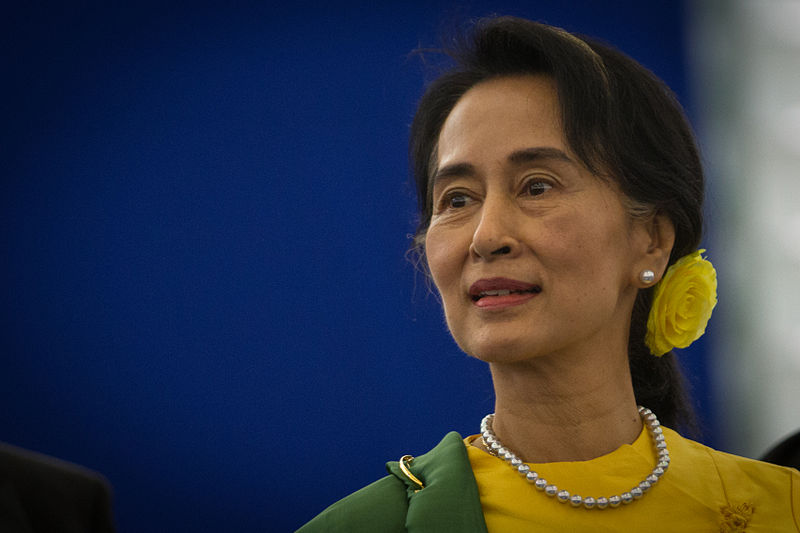History cannot be allowed to repeat itself
The detention of State Counselor Aung San Suu Kyi and other leaders of the civilian government in a military coup staged earlier this week put Myanmar’s young and fragile process of democratic transition at serious risk. Suu Kyi, de facto leader of the country, and President Win Myint, as well as other leaders of the ruling National League for Democracy (NLD), are reportedly being held under house arrest.
A statement issued by the military shortly after the coup declared that a one-year nation-wide state of emergency was in place and that the authority of the nation’s “law making, governance and jurisdiction” had been handed over to Senior General Min Aung Hlaing, the commander-in-chief of the armed forces. The military defended its action as necessary to redress what it alleged was “terrible fraud” committed in last November’s general elections, though the Myanmar National Election Commission (NEC) had rejected such a claim. Since the coup, the military has replaced the Cabinet and the NEC with former army personnel or others associated with the military.
The NLD scored a landslide victory in the November 8, 2020 election by capturing 396 seats, or more than 80 per cent of the 476 seats contested in the parliament, while the military-backed Union Solidarity and Development Party (USDP) won merely 33 seats. It was the second consecutive triumph for Suu Kyi’s NLD following the last general elections in 2015, the country’s first credible elections in 25 years, which formally put an end to the country’s more than half-a-century-old military dictatorship.
Yet the military retained considerable power even after the 2015 elections, protected by the country’s new constitution it had drafted in 2008. The 2008 constitution, for example, gave the military 25 per cent of a total of 664 seats in the parliament and the authority to name key cabinet ministers, such as those of defense, internal affairs, and border security. The constitution also barred individuals whose spouses or children are foreign nationals from assuming the country presidency, thus effectively blocking Suu Kyi, whose children carry British passports, from becoming the president. She had had to lead the civilian government as State Counselor, a special position created for her as de facto leader, while concurrently serving as Foreign Minister, instead.
Suu Kyi knew that she had to work with the military if she were to advance Myanmar’s democratic transition until such a day when the amendment of the 2008 constitution became possible. Given the 25 per cent of the parliamentary seats reserved for the military, amending the constitution that requires the support of three-quarters of MPs remained a tall order for Suu Kyi and the NLD government. She had no option but to walk on a tightrope carefully balancing the need to promote the nation’s democratic transition while at the same time not alienating the military, until such a day when her party secured the necessary support in the parliament. Suu Kyi even came under heavy criticisms when she remained silent about the military’s alleged genocide against the Rohingya Muslim minority in 2017.
The 2020 elections were a turning point for both Suu Kyi and the military – the resounding victory in the elections provided the NLD with a fresh momentum to amend the 2008 constitution, while for the military the fear of losing control of national politics became real.
The military seized power on February 1, 2021 hours before the new parliament were to convene and the results of the 2020 elections become reality. The timing also reflected the military’s calculation that it could weather international criticism under the present circumstances where traditional supporters of Myanmar’s democratic transitions, including the US, the UK, and other European countries, are preoccupied with their fight against the pandemic. The military could also count on tacit, if not overt, support from China, its traditional ally and major supplier of weapons, while expecting ASEAN, of which Myanmar is a member, to remain silent due to its standing policy of non-interference in member nations’ internal affairs.
The US, the UK, and the European Union, as well as the United Nations, strongly condemned the coup demanding the immediate release of Suu Kyi and other detainees, while calling on the military to restore the path toward democratic transition. The new US administration of President Joe Biden even raised the possibility of imposing sanctions if the military failed to act. On the other hand, China’s response has so far been lukewarm as expected. The UN Security Council convened a closed-door emergency meeting on February 2 to discuss the Myanmar situation but failed to condemn the coup due primarily to China’s opposition. ASEAN also stopped short of openly criticizing the coup, calling for the restoration of stability through dialogue.
The division in the international community, however, should not discourage the US, the UK, and other like-minded countries from taking strong actions, including targeted sanctions against the Myanmar top military leadership and those who support the coup. It should be remembered that when the NLD scored a landslide victory in the country’s first democratically held election in 1990, the military junta, which had ruled the country in isolation from the rest of the world since 1962, nullified the results and stayed in power on the pretext of securing peace and development during what it called a “transitional period.” That transitional period lasted for 25 years, during most of which Suu Kyi was held under house arrest. After all, Myanmar’s future is not with the military but with the people who have clearly spoken in the past elections.



